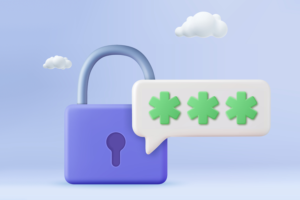If you tried to visit your favorite websites yesterday and encountered problems, you probably wondered what Cloudflare is that “went down” and affected the global web.
To start with, Cloudflare provides Web Application Firewall (WAF) services, but let’s take a look at what that means in simple terms, how it works, and why it’s so important for any online business.
What is a Web Application Firewall (WAF);
A web application firewall (WAF) is used to protect web applications from common cyber attacks, such as denial-of-service attacks (DoS), DDoS, and many other types of malicious activity.
In practice, it acts as a “shield” between web applications and internet traffic. It monitors, filters, and blocks suspicious and malicious HTTP traffic through its multi-layered security.
Who is it for? It is particularly useful for e-commerce companies, eShops, and all businesses that interact with their customers mainly online.
Therefore, as you can see, the recent bug in Cloudflare’s software, which serves a huge part of the internet by filtering traffic through its global network, affected many websites and services worldwide at the same time, making them inaccessible or seriously degrading their functionality.
Let’s now look at why it is worth using a WAF.
Why use a Web Application Firewall?
A web application firewall can have multiple benefits, such as:
1. Preventing bad bot attacks
Bot attacks are harmful to any website and a company’s reputation, and can cause significant problems:
- overloading with fake traffic
- spam in forms and comments
- brute force attempts
- DDoS attacks
- stealing sensitive user information
Using a WAF identifies and blocks malicious bot traffic, reducing the need for separate bot-blocker tools or complex defense strategies.
2. Patching insecure code
Although DevOps engineers frequently update web applications to address any bugs, vulnerabilities may remain due to delays in security updates.
In such cases, a WAF can be helpful.
Many WAF tools, such as Cloudflare, offer virtual patching, a strategy that reduces the risk from vulnerabilities that have not yet been fixed. It is not a long-term solution, but it gives security teams enough time to work on the vulnerabilities before cybercriminals exploit it.
3. Maintaining security compliance
WAF is also helpful for online businesses in automating the process of meeting regulatory security compliance, such as GDPR for personal data protection and PCI DSS for payment card data security in eShops.
Failure to comply with these regulations can have significant consequences for a business. Using WAF is one of the most effective ways to ensure meeting these requirements.
4. Real-time intrusion detection
A WAF helps security teams detect threats and attempted intrusions in real time. HTTP traffic is monitored automatically, 24/7, while most WAFs offer additional features:
- post-incident analysis
- security audits
- security measures after an attack.
If you want to install a firewall on your site, you can either do it yourself or, if you don’t have the technical skills, ask your programmer for help.
How to protect your business with the right use of WAF
To get the most out of a Web Application Firewall and reduce the risk of downtime or attacks, follow a few basic practices:
- Choose a reliable WAF
Opt for cloud-based solutions that update automatically and offer protection against new types of attacks. - Configure security rules correctly
Enable bot protection, rate limiting, and malicious activity detection. - Monitoralerts and reports
Most WAFs provide real-time alerts. Immediate response is important. - CombineWAF with regular updates
Even with WAF, CMS and plugin security remains critical, as it reduces the likelihood of vulnerabilities being exploited.
Properly configuring and monitoring a firewall is one of the most essential steps in protecting any online business.
Conclusion
A Web Application Firewall (WAF) is installed on web applications and websites to protect them from cyberattacks. It acts as a “shield” between the web server and malicious users, protecting against data leaks and breaches.
In short, a WAF is one of the most essential mechanisms for effectively enhancing the overall security of your site, and Cloudflare’s recent problems have reminded us of this in the clearest possible way.






Join the Discussion